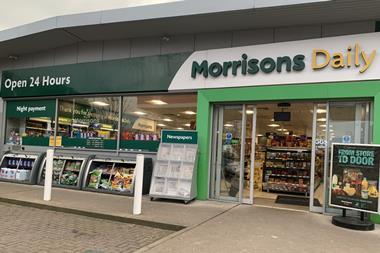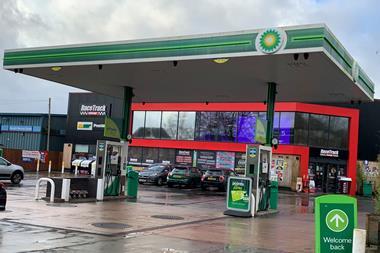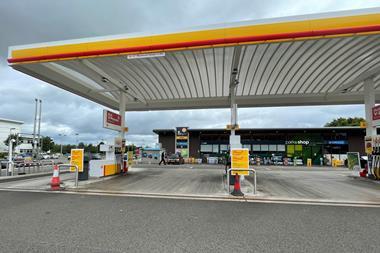After winning a long battle just to get the OFT to consider whether there were competition problems in the road fuel market, the outcome last week was a deep disappointment for the PRA, and the many other groups campaigning for a full investigation.
Having provided a mass of information, including detailed submissions from about 75 dealers and dealer groups, PRA chairman Brian Madderson believed he had provided more than enough compelling evidence, but instead the OFT gave the market an almost clean bill of health.
Clive Maxwell, OFT chief executive, said: "We recognise that there has been widespread mistrust in how this market is operating. However, our analysis suggests that competition is working well, and rises in pump prices over the past decade or so have largely been down to increases in tax and the cost of crude oil.
"Our call for information has not identified any evidence of anti-competitive behaviour in the fuel market at a national level, where competition appears to be strong. There may be some issues at a local level. Where we receive evidence of potential anti-competitive behaviour we will consider taking action. For example, we have recently opened an investigation into the supply of road fuel in the Western Isles of Scotland."
The OFT said that pre-tax, the UK has some of the cheapest road fuel prices in Europe. In the 10 years between 2003 and 2012 pump prices increased from 76ppl to 136ppl for petrol, and from 78ppl to 142ppl for diesel, caused largely by an increase of nearly 24ppl in tax and duty and 33ppl in the cost of crude oil.
The report noted the growing influence of the big four supermarkets, which increased their share of road fuel sold in the UK from 29% in 2004 to 39% in 2012. It also found that in August 2012, the average price of petrol at supermarkets was 2ppl cheaper than the average at sites owned by oil companies and 4.3ppl cheaper than the average charged by independent retailers. However it asserted that the supermarkets’ high throughput per forecourt and greater buying power allowed them to sell fuel more cheaply than their competitors.
The OFT said it recognised that many independent dealers had found it difficult to compete, with a significant number leaving the market. It reported that the number of UK forecourts had fallen from 10,867 in 2004 to 8,677 in 2012, although the rate of decline appeared to have slowed in the past three years. It claimed that in the majority of areas where forecourts closed between November 2011 and August 2012 retail competition still appeared to be strong.
Madderson responded: "This was a prime opportunity, supported by considerable new information from our retailers, to tackle market manipulation of UK wholesale prices and retail prices by the big players. This comes at a time when refineries have over-supply, and demand has slumped due to the Arctic weather, yet the wholesale cost of petrol has increased by over 7.00ppl since Christmas.
"How can the OFT, supported by Government, try and tell motorists and businesses that the market is working in the consumer’s interests? As independent retailers, we are left trying to explain the unexplainable to our forecourt customers who will rightly be angry at another unwarranted price hike"
"This failure by the OFT and Government to understand and act on simple evidence provided by our independent retailers will have nationwide implications resulting in a higher rate of filling station closures, higher fuel prices and higher risk of immediate transport disruption in a crisis."
However Madderson said there were some positive findings in the report. He said: "We are encouraged that the OFT has undertaken national sampling and found no evidence to substantiate the urban myth perpetuated by motoring organisations and the media that prices ’go up like a rocket and down like a feather’.
"Similarly, their findings confirm that the rise in fuel prices results from a quadrupling of crude oil costs and increases to duty and VAT. This does nothing to expose the market manipulators of wholesale costs though it does exonerate the independent retailer from claims of ’profiteering’."
Independent retailers who provided evidence to the inquiry also condemned the OFT’s verdict. Brian Tew, who runs Simon Smith Retail, a seven-site group based at Northleach, near Cheltenham, Gloucestershire, said the findings were wrong, but he was not surprised, because a four-month investigation could never get to the bottom of such a complex market.
He said: "This is absolute nonsense. I’ve been in the business 50 years and there is no doubt the wholesale market is being manipulated. I just want to see a proper wholesale price. There is no transparency."
Stuart Giles, from the 10-site Golden Cross Group based in Slough, said he was very disappointed by the OFT’s decision. He said there was a clear gap between what hypermarkets were charging compared to independents, and it was the retailers who were subsidising the oil companies’ loss-making prices for the hypermarkets and bearing the brunt.
Sue Kembrey of Stanshawe Service Station, north or Bristol, said: "We met the OFT in October, even though we didn’t have the time and gave them plenty of clear evidence. All we want is a level playing field." She said that on the day the report was published she checked the price of unleaded petrol at a company owned Shell site three and a half miles away, and it was retailing at 2ppl less than the wholesale price for her Shell garage.
The OFT report’s main findings
Independent dealers’ ability to compete fairly in the market: The OFT said it had examined claims that supermarkets’and major oil companies’ practices may be making it more difficult for independent dealers to compete with them. However, it asserted that it received no evidence of any anti-competitive practices being used against independent dealers that might lead it to take enforcement action. However, it added that it would consider any credible evidence it received and consider taking action where practices appeared to breach competition law.
Differences in pump prices between neighbouring towns: Petrol and diesel tend to be cheaper in areas that have a greater number of local retailers, in particular, areas where there are supermarket forecourts.
Differences between urban and rural areas: The OFT’s analysis found that in August 2012, petrol was around 1.9ppl more expensive and diesel around 1.7ppl more expensive in rural areas than in urban areas. This was attributed to a number of factors including lower throughputs per forecourt, fewer competitors (including supermarkets) within a local area, and higher transport costs for getting fuel to rural forecourts.
’Rocket and feather’ pricing: The OFT investigated the claims by some groups that pump prices rise quickly when the wholesale price goes up but fall more slowly when it drops. It analysed the relationship between retail and wholesale prices at both a national and local market level, as well as the relationship between crude oil prices and wholesale prices at a national level, but found very limited evidence to support such claims.
Motorway Service station petrol prices: Fuel was found to be often significantly more expensive at motorway service stations. In August 2012 prices were on average 7.5ppl higher for petrol and 8.3ppl higher for diesel than at other UK forecourts. The OFT said the differences may be explained partly by the higher costs associated with running motorway forecourts, but it was concerned that drivers are not able to view prices until they pulled into the service station. It has asked the Department for Transport to consider introducing new road signs that would display service station petrol and diesel prices for motorway drivers.





























No comments yet